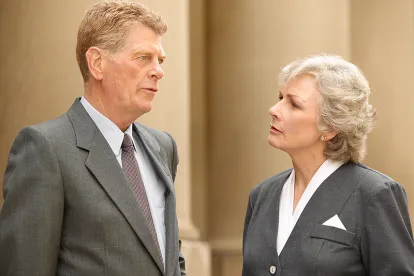In an (unpublished) Order last week in Griggs v. Bittersweet Farms, LLC, Judge McGuire ruled that Plaintiffs' counsel's instruction to his client not to answer certain deposition questions was improper. He granted a Motion to Compel responses to the unanswered questions, denied a Motion for Protective Order to excuse the Plaintiffs from having to respond, and ordered the Plaintiffs to pay Defendants' attorneys' fees for the cost of Making the Motion to Compel.
Instructing a witness not to answer a deposition question is pretty much forbidden unless a privilege is at issue. There are rules in almost all courts about this practice.
The Rules On Instructing A Witness Not To Answer
Rule 30 of the North Carolina Rules of Civil Procedure says that: "[s]ubject to any limitations imposed by orders entered pursuant to Rule 26(c) or 30(d), evidence objected to shall be taken subject to the objections." NCRCP 30(c). The italicized portion of the Rule has been interpreted to mean that counsel is prohibited "from instructing a witness not to answer where only an objection is proper." Order ¶4
The federal rule is more specific. It says that:
A person may instruct a deponent not to answer only when necessary to preserve a privilege, to enforce a limitation ordered by the court, or to present a motion under Rule 30(d)(3).
FRCP 30(c). It also says that: "An objection must be stated concisely in a nonargumentative and nonsuggestive manner."
The Business Court has a Rule dealing specifically with when you may instruct a witness not to answer a question. That is Business Court Rule 18.3:
Counsel shall not direct or request that a witness not answer a question, unless that counsel has objected to the question on the ground that the answer is protected by a privilege or a limitation on evidence directed by the Court.
Business Court Rule 18.3(a). The Business Court Rule also deals with "speaking objections," saying that "[c]ounsel shall not make objections or statements which might suggest an answer to a witness." BCR 18.3(b). Objections are to "be succinct, stating briefly the basis of the objection and nothing more." Id.
The Griggs' Depositions
The questions which the witnesses in the Griggs case refused to answer fell into two categories. The first was questions concerning the Plaintiffs' net worth, which the Defendants said were relevant to the Plaintiffs' ability to pay punitive damages if the Defendants succeeded on their counterclaims. The basis for the refusal to answer those questions was that they were intended to "annoy, embarrass or oppress" the witnesses. The second category of questions concerned a criminal proceeding pending against one of the Plaintiffs.
Judge McGuire said that he understood the Plaintiffs' desire to avoid disclosing their personal financial information in what he said was "an acrimonious family lawsuit," (Order ¶4), but he said that the protective order protecting that information should have been sought "prior to, or at the very latest during, the depositions." Order ¶4.
The NC Rules of Civil Procedure expressly permit counsel to seek a protective order in the midst of a deposition (it's in Rule 30(d)), but I can't imagine a Judge being instantly available to resolve such a dispute. As far as seeking a protective order "prior to" a deposition, how can a lawyer prophesize in advance of a deposition what opposing counsel might ask that she would want to prohibit?
The effort of Plaintiff's counsel to obtain a Protective Order was hurt by him waiting nearly seven months after the depositions to request it. Given that the Motion to Compel involved depositions occurring on several different days, Plaintiff's counsel could have moved for a Protective Order after the first deposition.
Attorneys' Fees
In addition to granting the Motion to Compel, Judge McGuire ordered the Plaintiffs to pay more than $3,000 in attorneys' fees for their misconduct.. Rule 37(a)(4) says that the Court shall award attorneys' fees if it grants a Motion to Compel "unless the Court finds that the opposition to the motion was substantially justified or that other circumstances make an award of expenses unjust."
After finding that the opposition to the Motion to Compel was not "substantially justified, Judge McGuire awarded $3,312.50 in fees. The individual Plaintiffs are responsible for half of the sanctioned amount, and their counsel is responsible for the other half.




 />i
/>i
